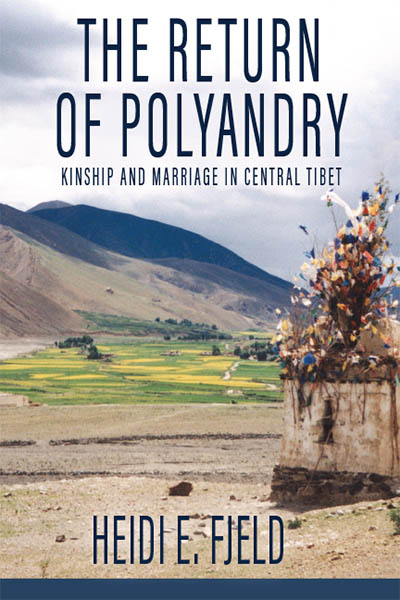“Fjeld's well-researched, readable book is the first full-length ethnographic treatment of kinship and marriage in Tibet under Chinese rule…The text is accompanied by striking black-and-white photographs, a glossary, an extensive index, and a comprehensive bibliography…Recommended.” • Choice
“This excellent work will be of great value to not only Tibetologists and scholars of anthropology of kinship, but also to anyone interested in learning about polyandry as a social and cultural phenomenon, or curious about the social and family organization of Tibetan regions.” • Yeshe
“This will probably be the single most important book-length study of polyandry, kinship and marriage in Tibetan societies yet to have been published. It is also one of very few fieldwork-based monographs of Central Tibetan rural communities, and it is an excellent one at that.” • Charles Ramble, École Pratique des Hautes Études, Paris
“The book reflects an important and original piece of research, and I anticipate it will become a work of reference both in Tibetan studies and in Social Anthropology. It is clearly written and well argued. It represents a milestone in promoting a fruitful dialogue between Tibetan Studies and anthropological approaches to the study of kinship.” • Hildegard Diemberger, University of Cambridge
“Much better than boring charts and old articles, The Return of Polyandry made my students see kinship as a key concept for anthropology today and in their own lives. This Tibetan story is surprisingly relevant for discussing polyamory, LGBTQ+, blended and fertility-assisted families in Europe and North America.” • Cameron David Warner, Aarhus University
Tibet is known for its broad range of marriage practices, particularly polyandry, where two or more brothers share one wife. With economic development and massive Chinese social and political reforms, including new marriage laws prohibiting plural marriages, polyandry was expected to disappear from Tibetan communities. This book takes as its starting point the surprising increase in polyandry in Panam valley from the 1980s.
Heidi E. Fjeld is Professor in Medical Anthropology at the Institute of Health and Society, University of Oslo. She is part of EATWELL, a radically interdisciplinary project on food systems in Bhutan, and the author of Commoners and Nobles: Hereditary Divisions in Tibet (NIAS, 2005).
LC: GT2783.A3 F54 2022
BISAC: SOC002010 SOCIAL SCIENCE/Anthropology/Cultural & Social; SOC026010 SOCIAL SCIENCE/Sociology/Marriage & Family; SOC008020 SOCIAL SCIENCE/Ethnic Studies/Asian Studies
available open access under a Creative Commons Attribution-NonCommercial-NoDerivatives 4.0 International License (CC BY-NC-ND 4.0) with support from the University of Oslo.


